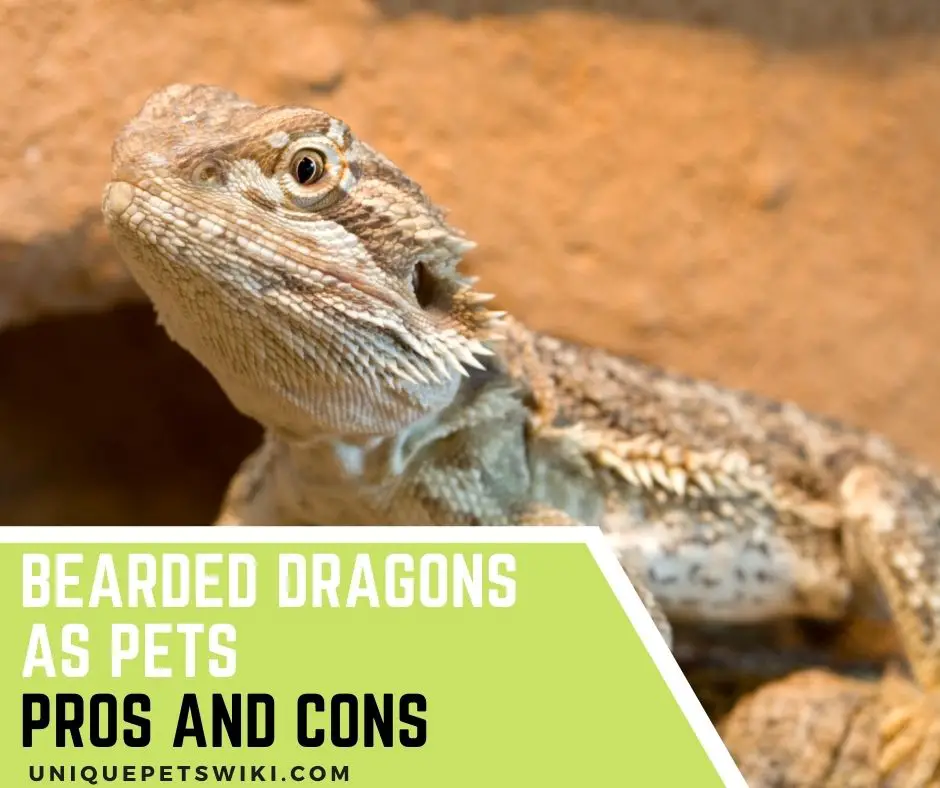Before deciding whether or not to keep a bearded dragon as a pet, you should review the pros and cons list to assist you in making an informed decision.
So, if you’re in the market for bearded dragons, you probably wonder if they’re good pets, or if they’re the right ones for you. This article covers all the information you might need to know before buying one.
Hopefully, you can make a firm decision after this article, let’s take a look!
Contents
Do Bearded Dragons Make A Good Pet?
For a variety of reasons, bearded dragons make excellent pets. These lizards are simple to look after, intelligent, entertaining to play with, and capable of forming strong bonds with their owners.
When you consider the one-of-a-kind element, we believe owning a beardie is a no-brainer.
Bearded Dragons As Pets Pros And Cons
There’s always some pros and cons in keeping any pet. We have to admit, they’re really interesting creatures, and have cool colors as well as they’re really fun to watch.
But we know that in keeping a pet, it’s a commitment, so you should be ready for the drawbacks here as well. So, here’s nine pros and six cons in keeping a bearded dragon as a pet based on numerous reviews from experts, and reptile enthusiasts.
We hope that after the article, you have a better outlook for deciding on having a bearded dragon as a pet.
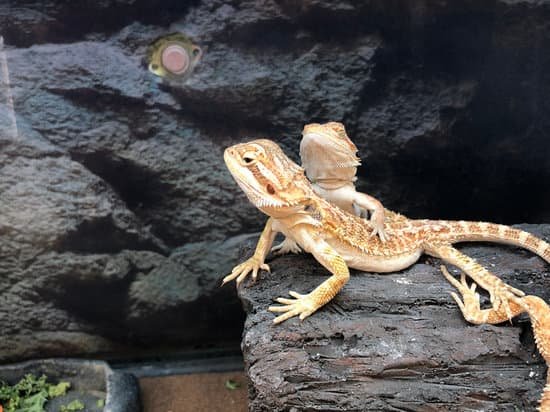
9 Pros Of Bearded Dragons As Pets
Bearded Dragons are among the most fascinating and gratifying reptiles to have as pets. They’re usually quite friendly with humans, and they like to hang around on shoulders and even the tops of heads!
These reptiles are also quite clever, which adds to the fun of playing with them. When bearded dragons love being with you, you can see it in their eyes, whether they’re enjoying company or not.
It’s these small things that truly distinguish them, and it’s what makes them so beloved.
Bearded Dragons Adapt Well In Captivity
Beardies have a calm temperament and a good-natured demeanor. When reared in captivity, they’re even more laid-back and kind.
Many foreign creatures are fearful of humans and are stressed out by them, whereas Bearded Dragons thrive in captivity.
Bearded Dragon Docile And Friendly
Bearded dragons are among the gentlest and kindest reptiles you will ever meet.
Kids may handle dragons as long as they are supervised by adults, so spend some time each day getting to know one, and that beardie will begin to act like a dog. They do not bite, though, unlike dogs, and they also have unique personalities and are a huge amount of fun!
Bearded Dragons Like Being Handle And Can Be Hand-Fed
They are excellent pets for anybody looking for a reptile who enjoys being held and brought out of his cage.
Bearded dragons, although being solitary creatures, like interacting with their owners. They like being hugged or having their cheeks, chin, or head stroked.
If you support their wide, flat bodies from beneath and let them stroll from hand to hand as they travel, they are often easy to manage.
Some may hide or turn their beard black, but if you set them down and try again later, they may reconsider. Furthermore, if they are already comfortable with your senses of touch and scent, you may feed them personally.
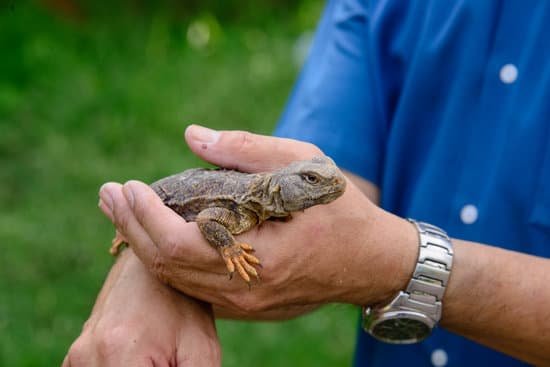
Bearded Dragons Have A Long Life
Beardies live for quite a considerable time. If properly cared for, a Bearded Dragon can live up to 12 or 15 years in care, and sometimes can exceed if you’re really taking good care of them!
They truly make good pets given their long life as well, a companion in life indeed!
Bearded Dragons Beautiful Animals And Variety Of Morphs
Due to Australia’s legal protection on animal exports since 1960, most bearded dragons are bred in captivity, which is why a variety of hues are available.
They come in a variety of colors, including red, yellow, white, and even purple, and there are numerous “morphs” that are very attractive.
Certain Beardie varieties have been developed to be fully colorless, without scales, and come in a variety of sizes. For these incredible creatures, the sky’s the limit. You may learn more about this topic by reading the following article: A-Z Bearded Dragon Morphs
Bearded Dragons Are Easy To Carry Go Out
A typical, fully mature Bearded Dragon weighs about 500 grams, making it very easy to transport and play with. Many folks take their Beardies on picnics as well! They reach 16 to 24 inches (1.3-2ft), which is still relatively easy to carry.
Not only that, but they’re also quite calm even when travelling, especially if they recognize you.
Bearded Dragons Are Nice And Quiet Pets
Bearded Dragons are modest and conscientious. They may hiss and make noise in their tank, but they prefer to just sunbathe and relax, and they won’t hound you for attention the way a dog or cat might, but that doesn’t mean you shouldn’t play with them!
Bearded Dragons Don’t Smell
The Bearded Dragon, unlike most reptiles, has no smell. They won’t stink up your house if you maintain their cages clean and give them regular showers (yes, washing your lizard is a fun hobby for both of you).
Giving them regular baths also has health benefits! Especially since bearded dragons don’t usually drink, baths are a good way for them to hydrate.
Bearded Dragons Are Relatively Inexpensive And Have Good Availability
Determined by the size and age of the Bearded Dragon, it might cost anywhere from $25 to $75. If you’re going for a more uncommon morph, it may get pricey, but otherwise, it’s an affordable pet to obtain.
Prices increase when you go for a reputable breeder, but the price is worth it since they can really help you with your beardie, otherwise those from the vet are also good beardies!
6 Cons Of Bearded Dragons As Pets
Although there are many advantages to owning a lizard, there are some drawbacks as well. Such as they have specific requirements, can carry salmonella, and they require a bit more money, effort, and time.
Before you decide to become a bearded dragon parent, you must weigh the upsides and downsides. So here are the several drawbacks of having them as pets.
Bearded Dragons Have High Requirement For Enclosure
A bearded dragon tank should be large enough to allow for adequate activity as well as an adequate temperature gradient.
To make your dragon feel at ease, keep the tank temperature between 75 and 80 degrees Fahrenheit. Additionally, a separate portion of the cage should be designated for basking, Temperatures should be kept between 90 and 100 degrees Fahrenheit in this basking area.
Your bearded companion may sleep longer than normal and exhibit indications of inactivity if one of these is missing.
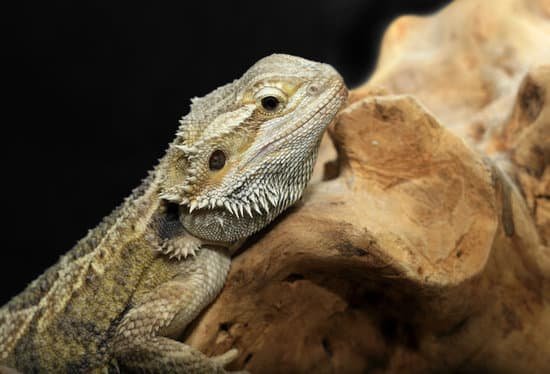
Bearded Dragons Need A Balanced Diet Including Insects
Bearded Dragons will require specialized food to meet their dietary requirements. This means you’ll have to take a little longer to put up the specific meals, and you won’t be able to dash down to the grocery store and grab a bag like you can with a dog or cat.
Bearded dragons are predatory creatures who enjoy live food, in case you didn’t know. This means you’ll need to have live insects on hand in your home to feed your pet. If you’re not a big fan of insects, think twice before purchasing one!
Maintaining Bearded Dragons Tank Requires Money, Time, And Effort
Bearded Dragons are very easy to care for in comparison to other reptiles, which is why they are known as beginner’s reptiles. However, Bearded dragons require a lot of effort to maintain health, and lighting and heating are costly.
In addition to the initial cost of the breed, the simple enclosure setup is $50-$200 depending on the age and the design. In one month, you will need about $30-$80 for feeding and can cost you between $25-$100 to visit a vet.
Bearded dragons require a unique habitat that must be maintained clean to avoid illness transmission. It also takes a lot of effort to maintain their tanks from heating, lighting, and temperature requirements.
This also goes for the right locations of the plants, their water bowls and other things within their tanks.
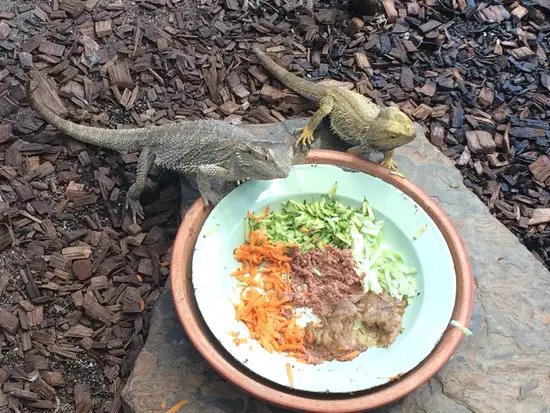
Bearded Dragons Can Carry Salmonella
Even though they appear to be healthy and clean, bearded dragons can transmit Salmonella bacteria in their droppings. These bacteria may quickly spread from their bodies to their habitats and everything else in their environment.
Bearded Dragons A Little More Fragile
They’re more likely to be damaged in an accident, such as when they’re dropped, and they’re also more prone to have some bone illnesses. They’re really susceptible to impaction, especially young beardies.
The best approach to prevent them from this is to make sure they have enough Vitamin D by putting them outside or making sure their terrarium has enough UV light.
Bearded Dragons Poop Smells
Bearded dragons, like most other reptiles, have no odor. Their bodies naturally have no odor. However, a bearded dragon’s wastes may smell a lot, and if you don’t clean the cage often enough, it may appear like the bearded dragon stinks, even if it’s only the tank it’s in.
In Conclusion
In conclusion, bearded dragons are excellent pets, but do your study and ask plenty of questions regarding lighting, feeding, and care before getting one.
Before taking your beardie home, you need to have a basic awareness of these items – as well as the fees involved with them.
Set aside some funds for the initial materials you’ll require. If you follow these steps, you’ll have a lot of fun owning and caring for your own bearded dragon!
We hope this article has been useful in your search for your next pet!
